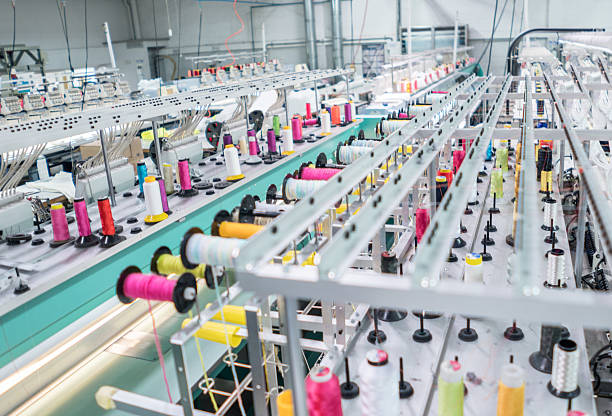The fashion industry has undergone a significant transformation over the years, with the advent of online retail stores and the rise of direct-to-consumer (D2C) fashion brands. D2C fashion brands are becoming increasingly popular, and they are disrupting the traditional fashion industry by offering customers a personalized shopping experience and high-quality products at an affordable price. In this article, we will discuss how D2C fashion has transformed the online fashion industry and why it is becoming the preferred choice for consumers.
Introduction to D2C Fashion
Direct-to-Consumer (D2C) fashion is a business model that enables fashion brands to sell their products directly to customers without the involvement of intermediaries such as wholesalers, retailers, or distributors. D2C fashion brands have complete control over the production, marketing, and distribution of their products. They leverage technology, data analytics, and social media to reach customers directly and offer them a personalized shopping experience.
The Rise of D2C Fashion Brands
D2C fashion brands have become increasingly popular in recent years, and they are disrupting the traditional fashion industry. They offer a unique shopping experience to customers, with high-quality products at an affordable price. Customers can purchase products directly from the brand’s website, which eliminates the need for intermediaries and reduces the cost of production and distribution.
Advantages of D2C Fashion Brands
D2C fashion brands offer several advantages over traditional fashion brands. Firstly, they have complete control over the production process, which enables them to ensure high-quality products. Secondly, they can offer products at an affordable price as they eliminate the cost of intermediaries. Thirdly, they can offer a personalized shopping experience to customers, which enhances customer loyalty and increases brand awareness.
Personalized Shopping Experience
D2C fashion brands offer a personalized shopping experience to customers, which is one of their key advantages. They use data analytics to understand customer preferences and offer products that match their tastes. They also provide recommendations based on the customer’s purchase history, browsing behavior, and social media activity. This enhances the customer’s shopping experience and increases the likelihood of repeat purchases.
Social Media Marketing
D2C fashion brands leverage social media to reach customers directly and build brand awareness. They use platforms like Instagram, Facebook, and Twitter to showcase their products, engage with customers, and create brand awareness. Social media marketing enables D2C fashion brands to reach a wider audience and generate more sales.

Sustainability
D2C fashion brands are also leading the way in sustainable fashion. They are more environmentally friendly as they produce products in smaller quantities, which reduces waste. They also use sustainable materials and production methods, which minimize their impact on the environment. Sustainability is becoming increasingly important to customers, and D2C fashion brands are well-positioned to meet this demand.
Challenges Faced by D2C Fashion Brands
Despite the many advantages of D2C fashion brands, they face several challenges. Firstly, they have to invest heavily in technology and data analytics to offer a personalized shopping experience to customers. Secondly, they have to compete with established fashion brands, which have a loyal customer base and a strong brand image. Thirdly, they have to maintain the quality of their products as they scale up their operations.
Conclusion
In conclusion, D2C fashion brands are transforming the online fashion industry by offering customers a personalized shopping experience and high-quality products at an affordable price. They leverage technology, data analytics, and social media to reach customers directly and create brand awareness. D2C fashion brands are well-positioned to meet the increasing demand for sustainable fashion, and they are leading the way in this regard.
FAQ
- What is D2C fashion?
Direct-to-consumer (D2C) fashion is a business model that enables fashion brands to sell their products directly to customers without intermediaries like wholesalers, retailers, or distributors.
- How is D2C fashion transforming the online fashion industry?
D2C fashion is transforming the online fashion industry by offering customers a personalized shopping experience and high-quality products at an affordable price. It leverages technology, data analytics, and social media to reach customers directly and create brand awareness.
- What are the advantages of D2C fashion brands?
D2C fashion brands have complete control over the production, marketing, and distribution of their products. They can offer products at an affordable price as they eliminate the cost of intermediaries. They also offer a personalized shopping experience to customers, which enhances customer loyalty and increases brand awareness.
- How do D2C fashion brands use social media marketing?
D2C fashion brands use social media platforms like Instagram, Facebook, and Twitter to showcase their products, engage with customers, and create brand awareness. Social media marketing enables D2C fashion brands to reach a wider audience and generate more sales.
- What are the challenges faced by D2C fashion brands?
D2C fashion brands have to invest heavily in technology and data analytics to offer a personalized shopping experience to customers. They also have to compete with established fashion brands and maintain the quality of their products as they scale up their operations.
- Why Should You Choose Warehousity?
Warehousity India is a reliable and long-lasting supplier of various storage spaces for its customers. The company is driven to resolve the supply chain problems of its clients. It offers customers secure fulfilment warehouses and data which are delivered electronically. It provides its customers with warehouses within a massive and growing network of warehouses that are functional.
